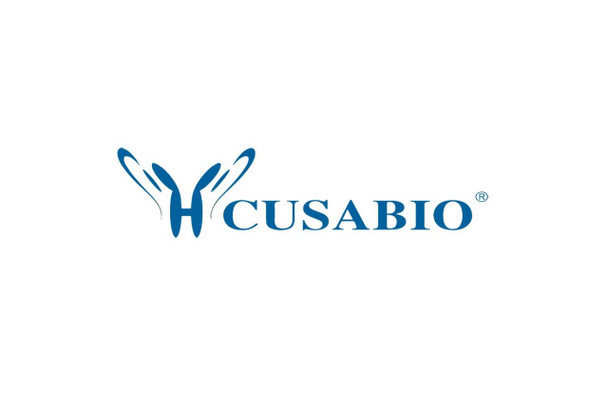Cusabio Human Recombinants
Recombinant Human DCN1-like protein 1 (DCUN1D1) | CSB-EP839329HU
- SKU:
- CSB-EP839329HU
- Availability:
- 13 - 23 Working Days
Description
Recombinant Human DCN1-like protein 1 (DCUN1D1) | CSB-EP839329HU | Cusabio
Alternative Name(s): DCUN1 domain-containing protein 1Defective in cullin neddylation protein 1-like protein 1Squamous cell carcinoma-related oncogene
Gene Names: DCUN1D1
Research Areas: Cancer
Organism: Homo sapiens (Human)
AA Sequence: MNKLKSSQKDKVRQFMIFTQSSEKTAVSCLSQNDWKLDVATDNFFQNPELYIRESVKGSLDRKKLEQLYNRYKDPQDENKIGIDGIQQFCDDLALDPASISVLIIAWKFRAATQCEFSKQEFMDGMTELGCDSIEKLKAQIPKMEQELKEPGRFKDFYQFTFNFAKNPGQKGLDLEMAIAYWNLVLNGRFKFLDLWNKFLLEHHKRSIPKDTWNLLLDFSTMIADDMSNYDEEGAWPVLIDDFVEFARPQIAGTKSTTV
Source: E.coli
Tag Info: N-terminal 6xHis-SUMO-tagged
Expression Region: 1-259aa
Sequence Info: Full Length
MW: 46.1 kDa
Purity: Greater than 90% as determined by SDS-PAGE.
Relevance: Part of an E3 ubiquitin ligase complex for neddylation. Promotes neddylation of cullin components of E3 cullin-RING ubiquitin ligase complexes. Acts by binding to cullin-RBX1 complexes in the cytoplasm and promoting their nuclear translocation, enhancing recruitment of E2-NEDD8 (UBE2M-NEDD8) thioester to the complex, and optimizing the orientation of proteins in the complex to allow efficient transfer of NEDD8 from the E2 to the cullin substrates . Involved in the release of inhibitory effets of CAND1 on cullin-RING ligase E3 complex assbly and activity. Acts also as an oncogene facilitating malignant transformation and carcinogenic progression .1 Publication
Reference: Squamous cell carcinoma related oncogene/DCUN1D1 is highly conserved and activated by amplification in squamous cell carcinomas.Sarkaria I., O-charoenrat P., Talbot S.G., Reddy P.G., Ngai I., Maghami E., Patel K.N., Lee B., Yonekawa Y., Dudas M., Kaufman A., Ryan R., Ghossein R., Rao P.H., Stoffel A., Ramanathan Y., Singh B.Cancer Res. 66:9437-9444(2006)
Storage: The shelf life is related to many factors, storage state, buffer ingredients, storage temperature and the stability of the protein itself. Generally, the shelf life of liquid form is 6 months at -20?/-80?. The shelf life of lyophilized form is 12 months at -20?/-80?.
Notes: Repeated freezing and thawing is not recommended. Store working aliquots at 4? for up to one week.
Function: Part of an E3 ubiquitin ligase complex for neddylation. Promotes neddylation of cullin components of E3 cullin-RING ubiquitin ligase complexes. Acts by binding to cullin-RBX1 complexes in the cytoplasm and promoting their nuclear translocation, enhancing recruitment of E2-NEDD8 (UBE2M-NEDD8) thioester to the complex, and optimizing the orientation of proteins in the complex to allow efficient transfer of NEDD8 from the E2 to the cullin substrates
Involvement in disease:
Subcellular Location: Nucleus
Protein Families:
Tissue Specificity: Expressed in pancreas, kidney, placenta, brain and heart. Weakly or not expressed in liver, skeletal muscle and lung. Strongly overexpressed in thyroid tumors, bronchioloalveolar carcinomas, and malignant tissues of squamous cell carcinoma of the oral tongue. Not overexpressed in aggressive adrenocortical carcinomas.
Paythway:
Form: Liquid or Lyophilized powder
Buffer: If the delivery form is liquid, the default storage buffer is Tris/PBS-based buffer, 5%-50% glycerol. If the delivery form is lyophilized powder, the buffer before lyophilization is Tris/PBS-based buffer, 6% Trehalose, pH 8.0.
Reconstitution: We recommend that this vial be briefly centrifuged prior to opening to bring the contents to the bottom. Please reconstitute protein in deionized sterile water to a concentration of 0.1-1.0 mg/mL.We recommend to add 5-50% of glycerol (final concentration) and aliquot for long-term storage at -20?/-80?. Our default final concentration of glycerol is 50%. Customers could use it as reference.
Uniprot ID: Q96GG9
HGNC Database Link: HGNC
UniGene Database Link: UniGene
KEGG Database Link: KEGG
STRING Database Link: STRING
OMIM Database Link: OMIM









